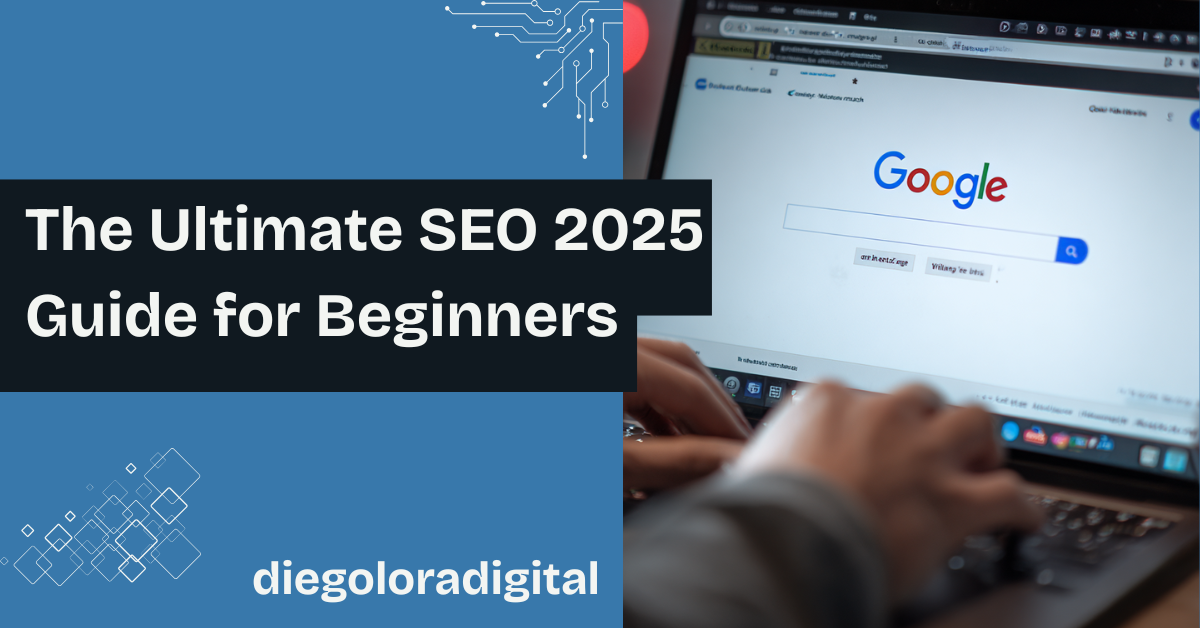Imagine having a website that works 24/7 to bring new customers straight to your digital doorstep—without spending a buck on ads. That’s the power of SEO, and it’s no longer optional for businesses that want to grow online. Whether you’re a small business owner just starting out or an established brand ready to level up, understanding the fundamentals of SEO is your first step toward sustainable online success.
In this guide, we’ll break down what SEO really is, why it matters, how search engines like Google operate, and the key ranking factors that can put your business ahead of the competition. I’ve even included a simple study roadmap if you’re ready to dive deeper and start applying SEO to your own business. But hey, if you’d rather focus on running your business and leave the SEO heavy lifting to the pros, that’s where my agency—DL Digital—comes in. We’ll help your site climb the rankings and attract the right traffic so you can focus on what you do best.

Table of Contents
Key Takeaways
- Search Engine Optimization (SEO) is the process of refining content so your business can be found through a search engine’s organic results.
- SEO is an important digital marketing channel for your business because you acquire free and consistent traffic thanks to its a massive audience reach.
- Crawling & Indexation, Google’s Ranking Algorithm.
- The three fundamental Google ranking factors for SEO are Backlinks, Search Intent, and Content Depth.
- Start your SEO journey with this roadmap: begin with keyword research, then move to On-Page SEO. Next, explore Off-Page SEO, and finish with Technical SEO. Follow these steps to master SEO!
What is SEO?
SEO stands for Search Engine Optimization, the process of refining content so it can be found through a search engine’s organic results. It is also the job title of a person who does this for a living like me.
Think of search engines as vast libraries that store copies of websites and web pages instead of books. When you enter a query, the search engine scans its entire index to find and deliver the most relevant results. SEO helps search engines recognize that your page is a perfect match for a particular search query.

Why is SEO Important?
- Free Traffic
- Unlike paying for ads, search traffic is free.
- While hiring someone for SEO services will incur a service fee, it is generally less costly than outsourcing paid ad campaigns. In addition to paying for the service, you also need to allocate a budget for the campaign itself on platforms like Google, Meta, TikTok, and others.
- Unlike paying for ads, search traffic is free.
- Consistent Traffic
- Organic traffic is typically consistent once you’re ranking high. Unlike social media or email marketing which often lead to transient traffic spikes, search traffic is driven by consistent user intent.
- Massive Audience Reach
- SEO provides the opportunity to reach massive audiences you wouldn’t have access to otherwise. With approximately 81.5 billion total monthly visits as of June 2025, according to a Similarweb report, SEO is a crucial strategy for businesses to get discovered, contributing to a company with a 89.62% market share in the global search engine industry.
How Search Engines Works? (Focus on Google)
Google’s operation involves two primary processes:
- Crawling and Indexation
- Google’s Ranking Algorithm
Let’s explore each of the processes
Crawling and Indexation
- These two things allow Google to discover web pages and create their search index.
- Google uses crawlers (also known as spiders) to obtain information, which gather publicly available information from all over the web. The spiders will start crawling from a list of known URLs called seeds. Then they follow the hyperlinks on those pages and crawl those newly discovered pages. And this process goes on and on allowing them to collect a ton of information.
- Then they take all of this data back to Google’s servers to be added to their search index. And that is what people like you and I are searching through when we key in a query in Google.
Google’s Ranking Algorithm
While Google makes “tweaks to their algorithm 500 to 600 times per year” and “no one knows exactly how their algorithm works,” Google provides “clues and some guidelines” along with third-party studies (like Ahrefs’) to understand key ranking factors.
What are Google’s Ranking Factors?
While hundreds of ranking signals exist, three fundamental and highly important factors are emphasized:
- Backlinks
These are “links from a page on one website to another.” Google views backlinks as a strong indicator of trust and authority. As the source explains, “if other prominent websites link to a page, that’s proof to be a good sign that information is well trusted.” Backlinks are conceptualized as “votes,” where “the more ‘votes,’ you get from credible sources, the higher the trust.” Ahrefs’ own studies show “a clear positive correlation between backlinks from unique websites and a page’s organic traffic.” - Search Intent
This represents “the reason behind a searcher’s query.” Google’s goal is to return “the most relevant results.” To match search intent, content creators must observe the types of pages currently ranking for a given query. For example, a search for “slow cooker recipes” typically yields blog posts with lists of recipes, while “slow cooker” alone shows eCommerce category pages. Failing to match this intent (e.g., trying to rank a product page for “slow cooker recipes”) will prevent ranking. - Content Depth
While search engines are computer programs, Google has invested heavily in technology to “understand content to a certain degree.” As a content creator, your role is to “provide context about the subject” and “answer the searcher’s query the best that you possibly can.” This naturally leads to content with depth. Importantly, “depth doesn’t always translate to length.” A short, concise piece that fully answers a query (like “how to turn off iphone 12”) can be more effective than a long one that fails to address the user’s need.
Study Guide for SEO Newbies
I will share you a roadmap about which SEO topics you should start as a begginner digital marketer interested in the SEO industry:
- Keyword Research
- Understand what are keywords and how to conduct a keyword research.
- On-Page SEO
- Learn how to optimice your website pages to rank for the chosen keywords.
- Off-Page SEO
- Understand the strategies for acquiring backlinks, a prominent ranking signal.
- Technical SEO
- Look how you can optimize a website’s structure and code to make it easier for search engines to crawl, understand, and index content
Leave a Reply